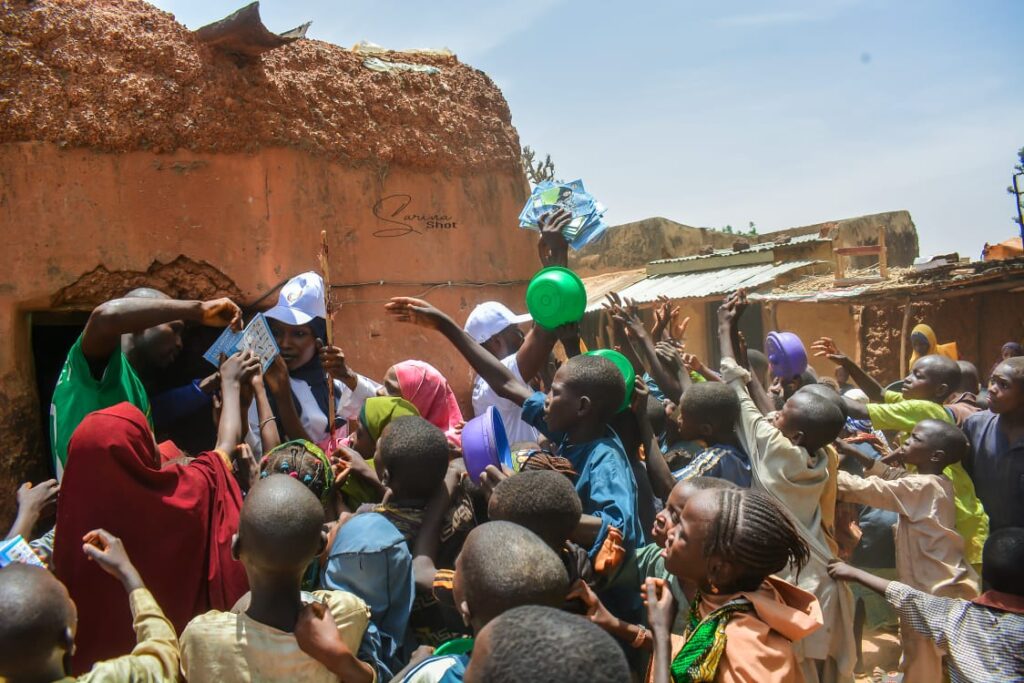The Vulnerable People Support and Development Initiative (V-PeSDI) has emphasized on critical stakeholders to apply more concern for vulnerable children in developing countries while celebrating International Children’s Day.
This was disclosed by V-PeSDI Coordinator Hannatu Suleiman Abba while joining thousands of organizations in Kano State to merry the moments with vulnerable children.
With the current global statistics, according to the United Nations International Children’s Emergency Fund (UNICEF), there are over 2 billion children in the world, and over 1 billion are vulnerable—at high risk of poverty, lack of health, education and social services, disabilities, conflict, and exploitation as the major roots of their condition.
Nigeria is among developing countries with vulnerable children, with over 90 million, and is affected by out-of-school children, child labour, poverty, and conflict in some regions.
However, India, Democratic Republic of Congo (DRC), Ethiopia, South Sudan, and Afghanistan children suffer from hunger, weak child protection systems, conflict, child soldier recruitment, malnutrition, child mortality, and child marriage, to mention a few.
As the world is centered with policies that protect the lives of children, developing countries need global support in shaping the narrative for the well-being of children.
In addition, children need basic necessities, which include food and clean water, shelter for safety, hygiene products and clothing, access to education, a safe environment for learning, inclusive schools, scholarship schemes, and school materials.
Furthermore, the health aspect should include access to immediate healthcare provider services, vaccinations and emergency care, mental health support, and free medical check-ups.
Other interventions include legal protection from child labour, abuse, and trafficking, freedom of expression, family and community support systems, empowerment, etc.
V-PeSDI also called on stakeholders to develop a strategic process for the implementation of child protection laws in developing countries, especially at the grassroots level of state jurisdiction, with Kano State as a case study

